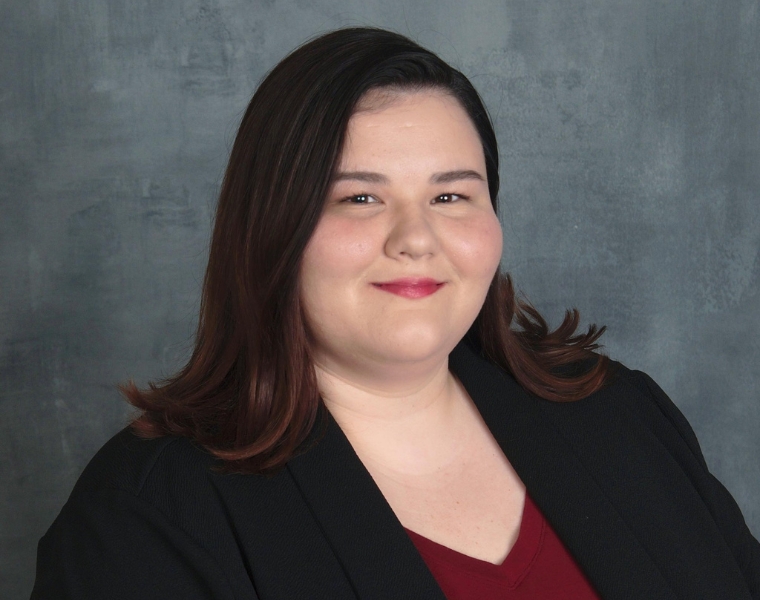At the Jack, Joseph and Morton Mandel School of Applied Social Sciences, Jasmine Myers is pursuing her online Master of Science in Social Administration with a clear goal in mind: to help victims of human trafficking. Unfortunately, the cause is personal for Myers—and it’s one she resolved to protect others from at a very young age.
After earning her bachelor’s degree in psychology from University of North Carolina – Asheville, Myers set out to broaden her academic scope as a social worker with training from Case Western Reserve University. She is on track to graduate this spring, and she hasn’t wasted any time advocating for trafficking victims and survivors.
A member of Survivor Advisory Councils with the Collaborative to End Human Trafficking and Eyes Up Appalachia, Myers reviews and provides feedback on materials, reviews policies and procedures, speaks at conferences, and more.
“I can understand the depths and healing process from an entirely different perspective than individuals who do not have lived experience,” Myers said. “My story is powerful in rooms where individuals are looking for advice on policy changes, program adjustments, and educational programs. I can educate the community on a personal level and give a ‘face’ to the experience.”
Myers also uses her social-work knowledge as an adult mental health case manager and counselor at Alternative Paths in Ohio and as director of programming for Total Life Wellness and Women Revived Ministries.
In honor of World Social Work Day (March 21), we spoke with Myers to learn more about her experience in the field and how she is making a difference for human trafficking survivors.
Answers have been lightly edited for clarity and length.
1. What interested you in CWRU?
I was drawn to CWRU because of the prestigious social work program that members of the community talked about. I value my education and have always enjoyed learning from the best and I was informed that Case [Western Reserve] was in fact the top school.
2. Why is it important to you to share your story?
I share my story for a couple of reasons. It is important for the community to be educated and understand that human trafficking looks differently for every person. The community needs to know that human trafficking is everywhere and happens to every type of person.
They also need to know that just because someone is facing the very life-and-death situations that are involved in human trafficking it does not mean that they won’t be successful. I often was not believed or supported because I was “too smart” and “didn’t act like a victim”—what a thing to say to someone who is trying their best to survive and not allow their experience to destroy them.
Another reason I share is to give hope to other survivors. God has been my rock and my strength and has pulled me out of the darkness. That hope is available to all, no matter what has happened. I also share my story to lift the shame, guilt and stigma off of trauma. It is not something we should be ashamed of or feel like we must hide. Our experiences matter and it is important to share, heal and grow.
3. What do you think others should know about human trafficking?
The main thing everyone should know about human trafficking is that it is affecting the people around you and the people you know. A lot of people have made statements such as “I don’t get involved because that doesn’t happen here and it doesn’t affect my home.” Let me tell you, it is present, and it is all around you. You just don’t know what it truly looks like.
4. What do you hope to do once you complete your degree?
I plan to fully transition into the human trafficking sector and use my voice to eradicate human trafficking. We are not for sale and I will not stop until everyone is free.


